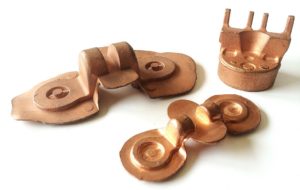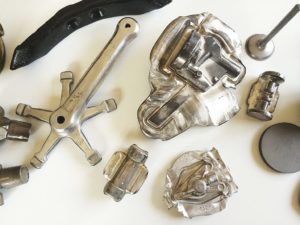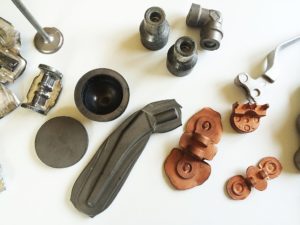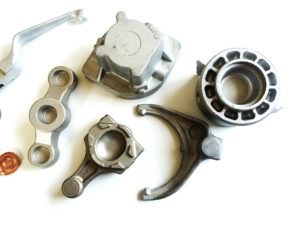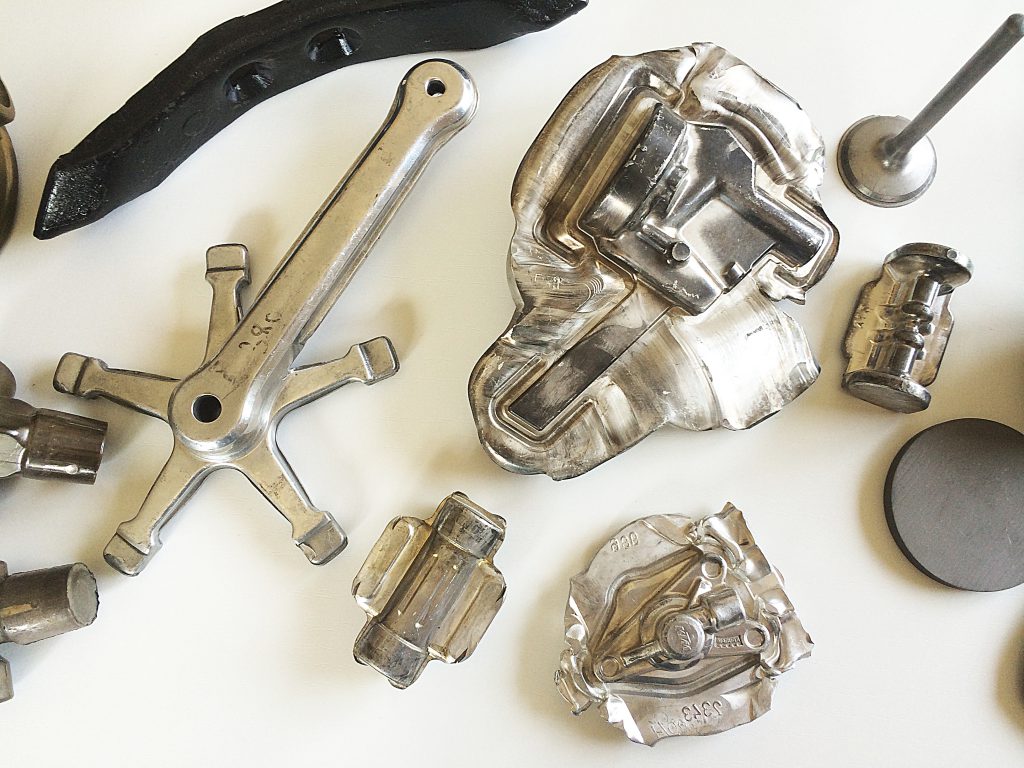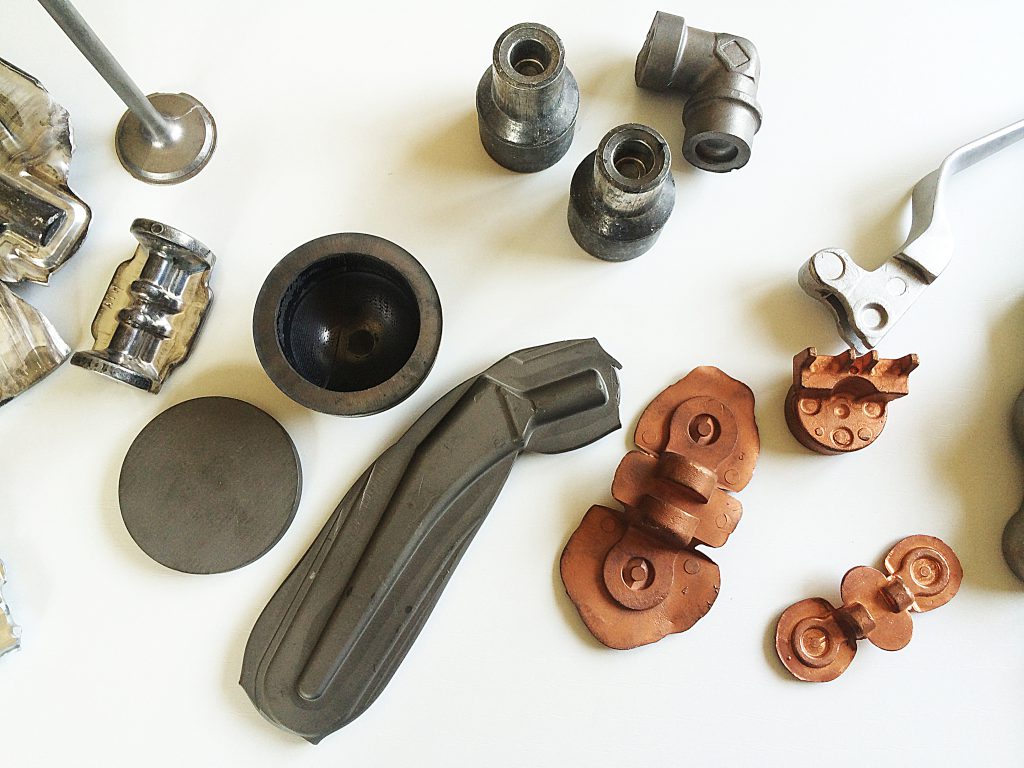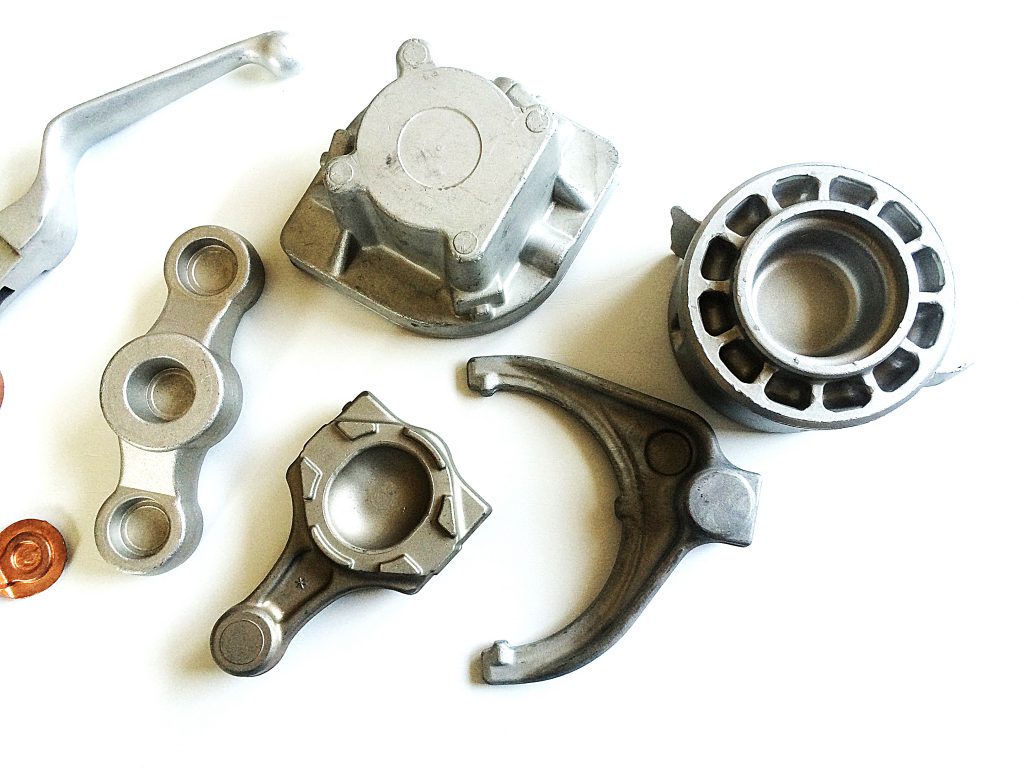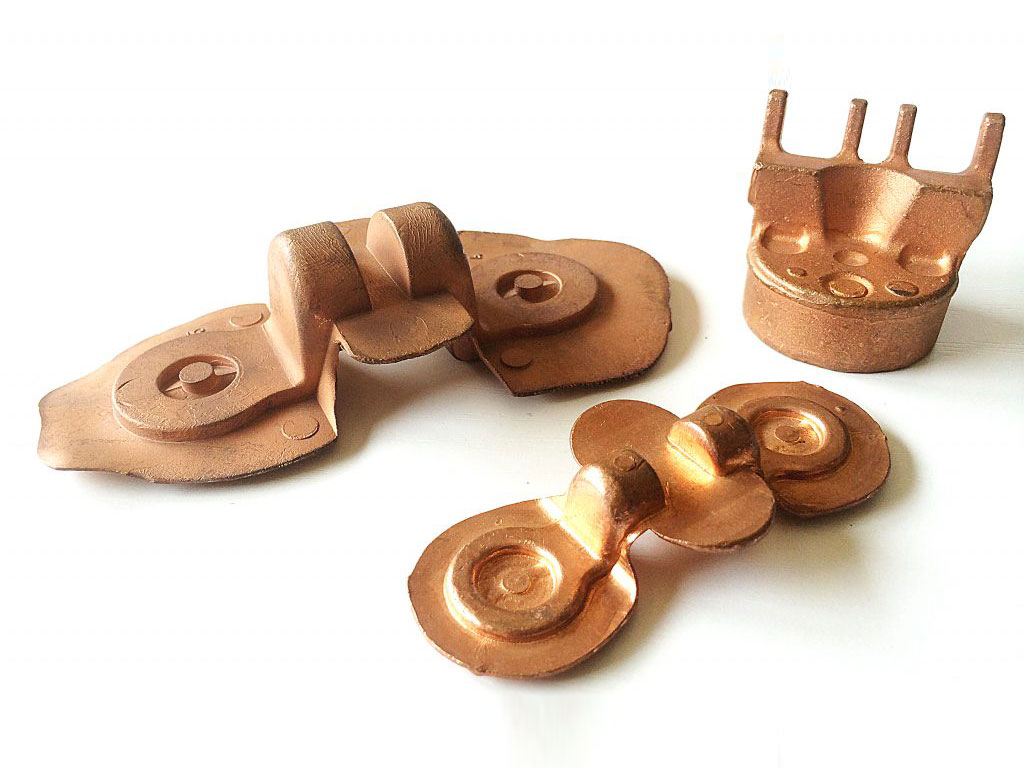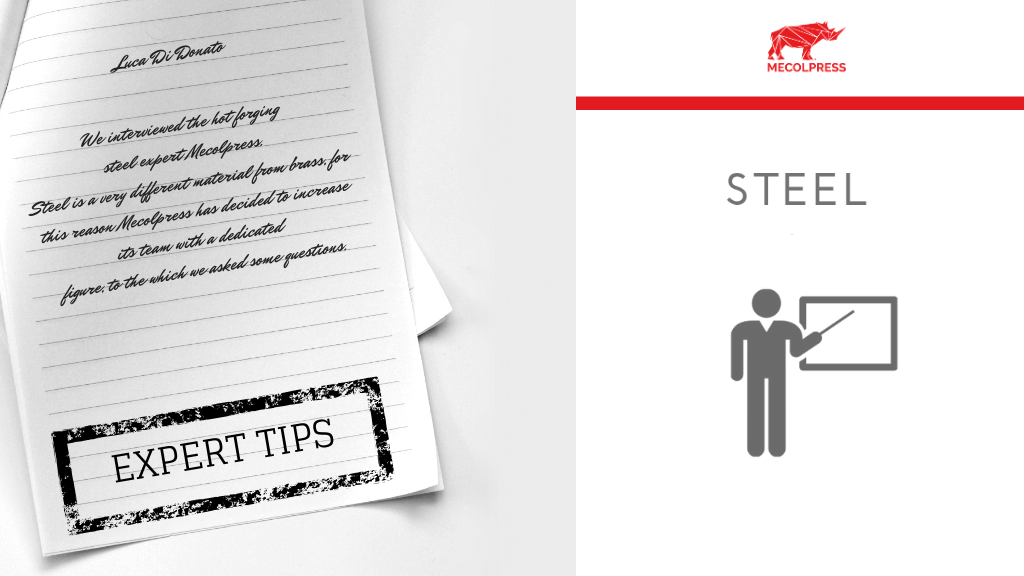
STEEL HOT FORGING: THE WORD TO OUR EXPERT
We interviewed Luca Di Donato, Mecolpress specialist for steel hot forging.
Steel is a far different material from brass, for this reason Mecolpress has decided to increase its team with a devoted figure, to whom we have addressed some questions.
Let's talk about steel hot forging
What is your role in Mecolpress?
The role I currently play in the company context is project engineer manager specialized in steel hot forging and non-ferrous alloys (except brass).
Specifically, I mainly deal with the identification and definition of the hot plastic deformation process that is technically and economically most suitable for the production of semi-finished steel components but also aluminium and special nickel and Titanium alloys.
What kind of experience do you have in steel hot forging sector?
The gained background in the specific sector derives from many years of work experience acquired in the company field, initially as a designer and then as technical and operational director of companies located in Italy and abroad.
Which application sectors do usually use steel hot forging presses?
Presses for steel hot forging are widely used in many application sectors such as automotive, aeronautics, agriculture, construction, chemical, petrochemical and industrial sector in general.
Which type of machine is most suitable for steel forging? (mechanical presses, hydraulic presses, screw presses?)
From a metallurgical point of view, steel can be forged using every type of press, since the types of steel in general are little affected by the presses deformation speed as some aluminium alloys and the super alloys of Titanium and Nickel are affected.
Therefore, there are other parameters that influence the choice, in fact the geometry, the geometric and dimensional tolerances can certainly guide the choice on a mechanical press rather than on a screw press, but also on a hydraulic press.
Compared to brass, which are the distinctive traits of steel?
From the process point of view and therefore from the point of view of the relative presses, the first aspect that is typical for steel is certainly the forging temperature which is around 1200 ° C.
The other equally important feature is the steel deformability which is far more difficult than the one of the brass. The resistance to hot plastic deformation of steel forces the adoption of simpler geometries, the adoption of presses with increased capacity in terms of forces, moreover, pre-forming processes are often used.
According to your experience, which are the recurring critical issues that you could observe in the forging of this material?
As previously highlighted, steel is forged at high temperature, therefore possible overheating can be created in areas that are particularly subject to deformation, the involved forces are important and as a result the energy and disposition can approach the limit and cause no geometric conformity on the piece.
In the end, steel cannot be easily deformed and therefore it requires a specific study to understand which preforming processes are better to adopt in order to avoid cracks / folds of material.
Always according to your experience, when we want to choose the most suitable machine, what should we absolutely consider?
Obviously the geometry of the forged product to be obtained, together with the imposed geometric and dimensional tolerances, strongly influences the choice of the best process, first of all the type of press but also all the machines necessary to compose the line, from the cutting, heating, and preforming process up to the possible calibration of hot / cold forging.
Mecolpress, through the specific skills acquired in fifty years of working history and thanks to its professionalism, is able to support the customer from the very first stages of defining the most suitable geometry for the choice of the forging up to the realization of the line, also fully automated, turnkey.
What do you think that can really make the difference in a “guessed” press?
The heart of the production line in its entirety is the PRESS which has been designed to respect specific characteristics, as a result “guessing” the type of press is absolutely important, but it is equally essential to consider who designed and built it, in this regard the presses produced by Mecolpress are considered to be among the best on the market, both in terms of technological content and in terms of rigidity and reliability.
If you want further information regarding the topic “Steel hot forging”, we invite you to consult the U.NI.S.A. Italian National Union of Steel Forgers, of which we are aggregate members.
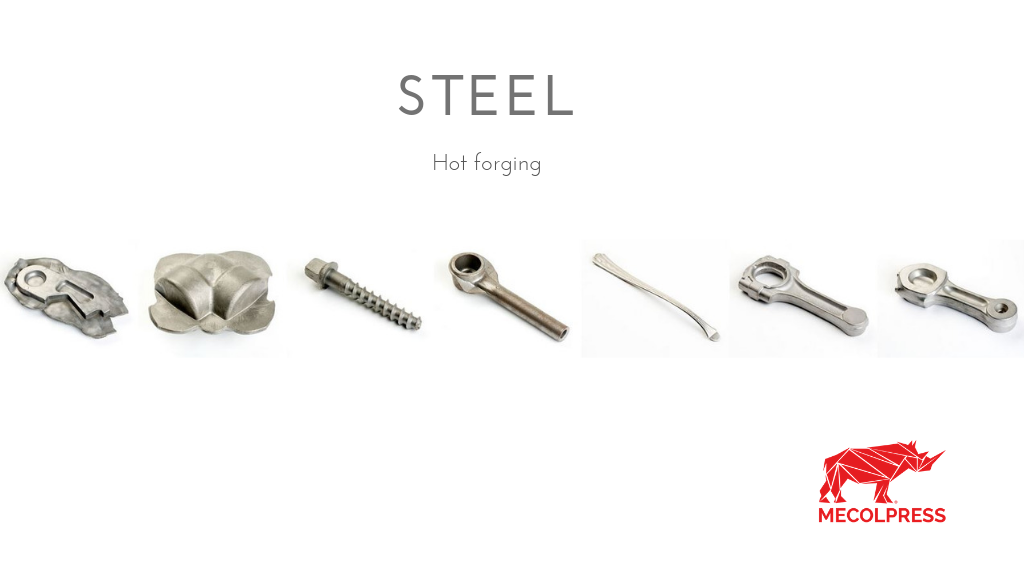
Steel hot forging: Mecolpress solutions
Mecolpress boasts a very long experience as producer of mechanical and hydraulic presses for the realization of hot forged steel parts. For a complete and detailed overview of our presses, please contact our sales department.
For the hot forging of steel parts, it is possible to use mechanical or hydraulic presses according to the geometrical complexity of the part to be forged and to the features of the specific alloy used for the forging.
Steel features
Steel is well-known for being a material having a considerable mechanical resistance and this characteristic makes it a material suitable for innumerable application sectors, including construction industry, automotive and railway sector.
Through the mechanical and hydraulic Mecolpress presses, it is possible to realize different types of parts, including for example screws and valves.
Steel hot forging presses
Mecolpress proposes to its customer companies different presses both mechanical and hydraulic for steel hot forging.
During the forging process of this material it is necessary to pay attention to the used energies and temperatures. Regarding the forging temperature of the billets, at presence of steel alloys, this goes approximately from 1.000°C to 1.200°C. The dies temperature is about 300°C, instead.
Moreover, during the steel hot forging process it is necessary to use the right lubricants in order not to wear the die and to optimize the production.
During the hot pressing of steel, the right lubricants must also be used in order to facilitate the flow of the material and the detachment of the same from the die. Mecolpress equips its presses with automatic lubrication systems with fixed or mobile points according to the specific application and in order to optimize the production process.
Our sales department remains at customer’s disposal to suggest the most suitable press to the production specific needs and, in addition, in the after-sale step it is possible to take advantage of a customized training course against payment, in order to learn all the tricks to make the best use of the bought press according to the production type.
The production cycle can be carried out completely automatically or manually according to the customer’s specific requests.
All the screw presses are customizable according to customer needs.
For further information you can contact our sales managers.
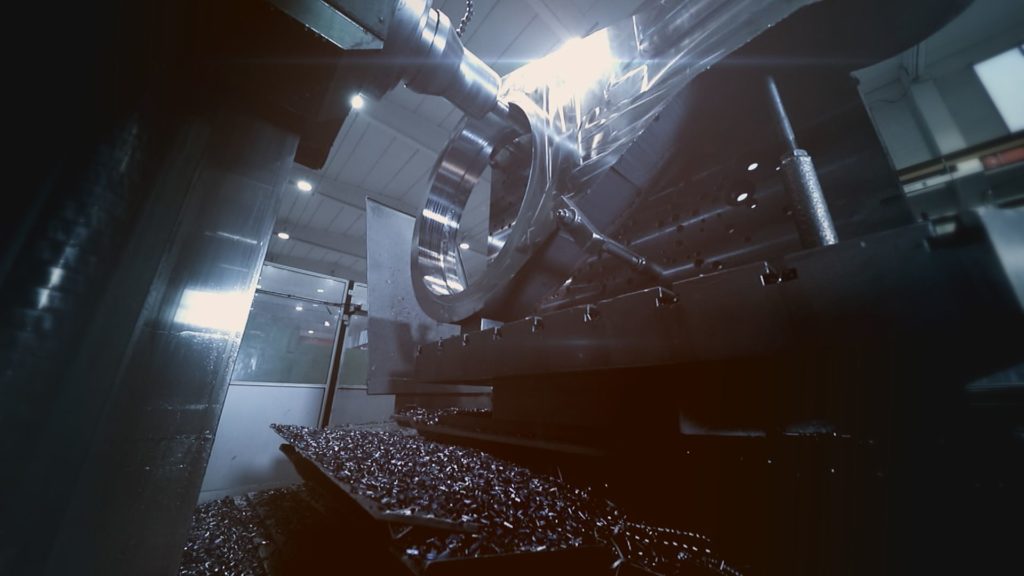
Metals hot forging process
Metals forging: hot or cold forging?
The forging by means of presses of metals commonly used for the industrial production, such as aluminum and brass, can happen in two ways.
- The first one is the cold coining, carried out, for example, on a piece that already has its own shape and that is forged through the press in such a way to calibrate it and to compact it. The cold coining is suitable, above all, for small size parts and for great production batches, such as screws. The most suitable machines for this type of process are our screw presses.
- The metals hot forging is different from the cold one because it allows to obtain high quality pieces by means of an important deformation of the starting material. With the deformation of brass, copper, aluminum by means of hot forging presses it is possible, indeed, to produce particular shapes, having very complicated structures as well. In order to achieve this forging, Mecolpress proposes, beyond the already mentioned screw presses, also the mechanical and hydraulic presses according to the different production necessities expressed by the customer.
Mechanical and hydraulic presses for the hot forging
The mechanical press can hot forge even complicated pieces. At the end of the process, the forged parts can often have some remaining flash that can be eliminated by means of a trimming machine, machinery that is part of the products range that we offer. The eccentric mechanical press with continuous cycle is recommended for the customers who have high production necessities, while the hydraulic press is more advisable for parts having very complicated shapes and that would require, otherwise, the usage of a lot of material. This type of press permits, indeed, a saving of the input material, so offering to the forger a good margin on the product cost. Moreover, by forging the parts by means of hydraulic hot forging presses, at the end of the productive cycle the parts range that can be produced without flash is much wider, thanks to a progressive and programmable application of the forces. Another characteristic of this type of presses is the flexibility, given by the wide number of available functions.
Hot forging line
For the metals forging a furnace that can be electric (induction) or gas furnace and a press are needed. This is the base productive line for the aluminum, brass, titanium and steel processing; line that can be upstream completed with a sawing machine that cuts the metal bar in billets and with a graphitizing machine, where the billets are treated with the graphite before these are inserted in the furnace, so that these absorb better the heat and that are kept lubricated. The graphitizing, that offers remarkable advantages from a productive point of view, such as a minor gas consumption in the furnace and a superior durability of the dies, is just fitting for some specific production typologies. It is not recommended, for example, for the production of parts that once forged, must be chrome plated or exposed to further particular treatments. Our sales department is at the disposal of our customers for suggesting the best forging line composition according to the product and to application field.
Hot forged metals
The customer’s choice for a specific press for his own productive cycle is based on the material typology used by the forger and on the shapes to achieve.
For the brass forging the hydraulic press is more fitting than the screw press, that is better for the forging of titanium and steel. The eccentric mechanical presses are used for all the metals, even for the copper hot forging. Our sales department is at disposal of our customers for offering the best technical solution for every specific productive situation.
For further information about hot forging machineries, please write us at sales@mecolpress.com
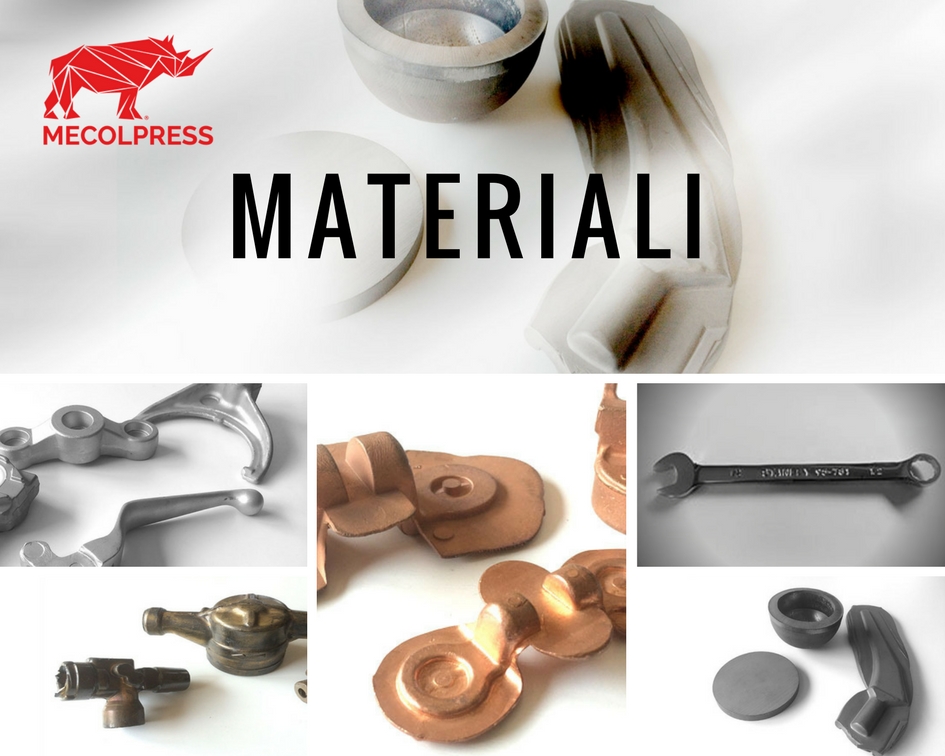
Materials Forged
Mecolpress is leader in the production of industrial presses for the hot forging of materials like:
brass, titanium, aluminium, copper and steel.
The competence of the Research and Development department of Mecolpress support our customers to obtain several goals:
- To be informed about the methodologies to optimize the production thanks to the hot forging of the parts in an efficient way, without the need of subsequent operations like trimming the flash or similar, and also in an effective way, producing a piece that is robust and perfect as the shape to which is inspired;
- To learn which are the most suitable materials for which applications and determine in which conditions the properties of the materials itself are best performing;
- To adapt the best production technics to the need of specific industry sectors, to particular countries prescriptions, according to the local laws and styles.
Mecolpress is therefore a competence centre for the hot forging of material on international level, and this also thanks to the global success that the company has reached in its history.

